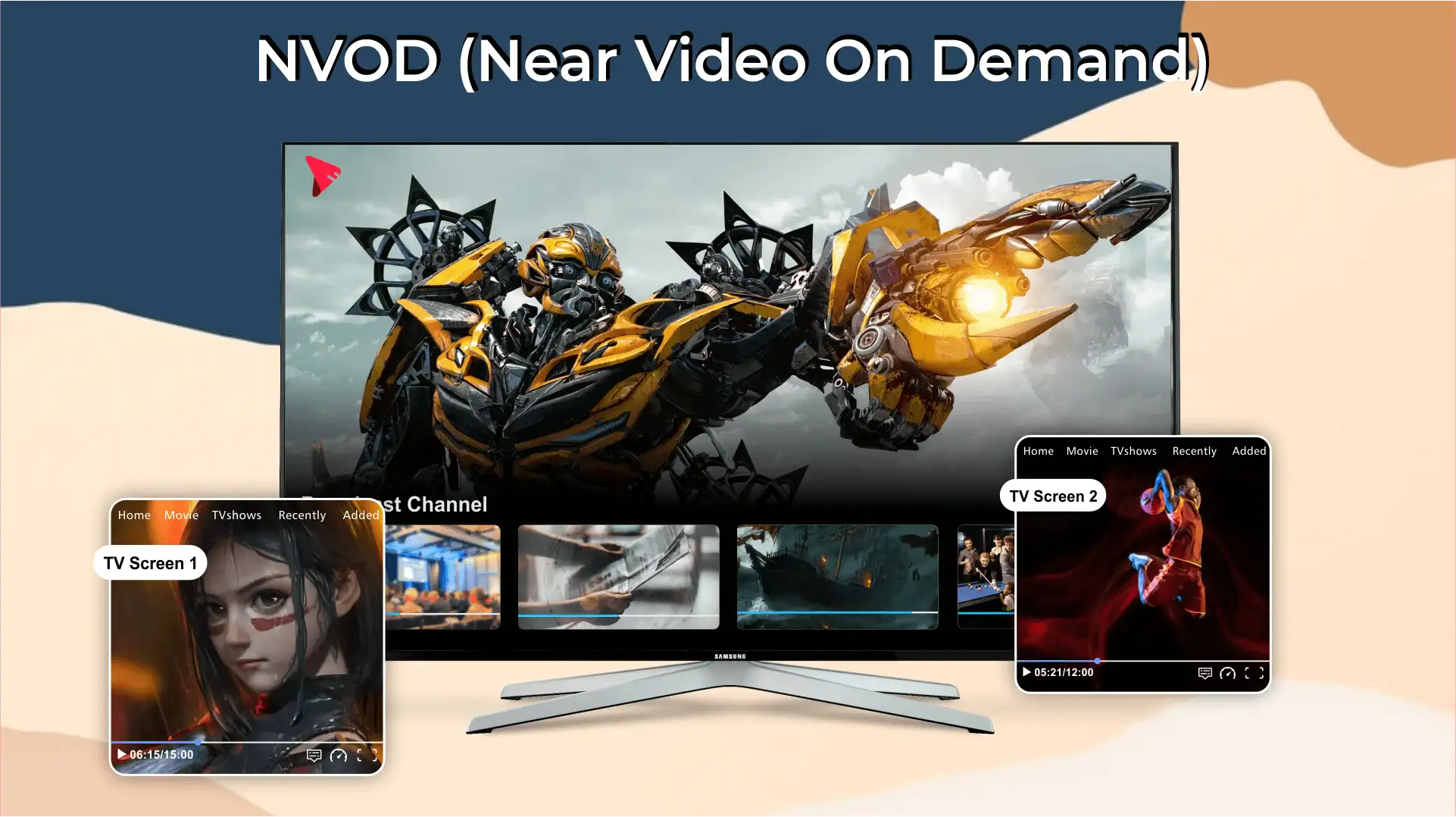Understanding NVOD: Introduction, Benefits & Future Prospects
Delve into Near Video-On-Demand (NVOD) to uncover its vast potential and future opportunities in digital entertainment. Explore now!
Rishabh Jain
Jan 31, 2025

There is a widespread belief in the broadcasting industry that each consumer interacts with their TV requests in real time, obtaining consistent fulfilment. When we notice that on-demand films have the ability to provide individual television viewers with practically instant access to a large range, another dimension appears to be at work. It differs from traditional TV viewing in that there is a significant degree of interactivity between the viewer and the material being shown, such as recorded movies, video programmes, games, and other services. The topic of NVOD and its significance is brought up.
What is NVOD?
Near video on demand (NVOD ) necessitates a quick response time between programme selection and content delivery. This interval may be measured in seconds, minutes, or on rare occasions hours. During the video interludes, interactive advertising content will occupy the same space as it does in theatres. By selectively permitting ad inserts in the subscriber's bundle, the system even enables viewers to watch new films at a reduced cost. Indeed, it is significantly less expensive than pay-per-view films.Know more about NVOD
Near video-on-demand (NVOD) applies to digital TV broadcasting and operates under the assumption that viewers are never more than 20 minutes away from viewing a movie. Allowing them to choose their preferable start times increases the likelihood that they will purchase a film. NVOD, which stands for "Near Video On Demand," allows broadcast service providers and television streamers to distribute media in a unique way. The key component of this strategy allows consumers to choose between restricted and subscription-based broadcast video channels. Cable or satellite service providers employ NVOD to allow their customers to view their favourite shows/movies on different channels at different times. NVOD channels are also used by pay-per-view service providers to allow members to watch videos on a set timetable.Benefits of NVOD
Near VOD, which is linked to broadcasts inside a television programme service, where the public receives the service on the basis of selective access to programmes at predetermined times, offering material via a linear transmission schedule chosen by the subscriber. Among its many advantages are:- Pay Cable Service Streaming
- Video Relies on Variable Times
- Content-Specific Charges
- Video Viewing Capability
- Picturesque Media Is a Cut Above